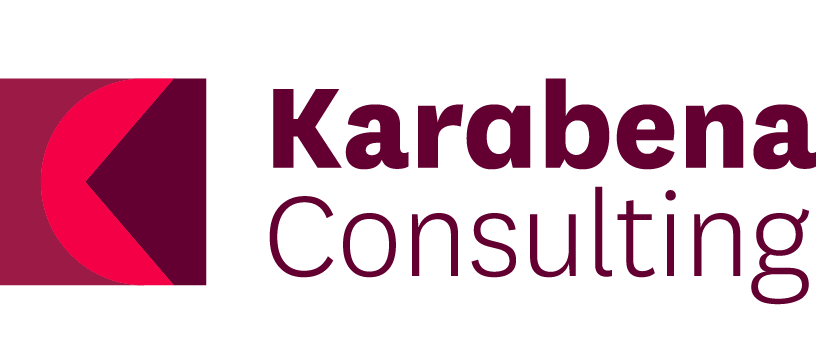Evaluation of the Specialist Trainee Support Program (STSP)
The Australian Indigenous Doctors’ Association (AIDA)
Who funded the project
Karabena Consulting was engaged by AIDA to undertake an external evaluation of the STSP. This project served as the first independent evaluation of the STSP, a key milestone in examining the program’s efficacy and impact, and to explore areas to strengthen its strategic development. The objectives of the evaluation were to:
Describe the program’s value to key stakeholders,
Assess investment and impact of the program,
Identify early outcomes of the program,
Outline challenges and limitations of the program, and
Outline recommendations for future enhancement of the program.
To achieve this, Karabena Consulting completed a Desktop Review of both publicly available and internal AIDA documentation; a literature review of comparable Indigenous fellowship programs in Aotearoa New Zealand and Canada; and interviews and focus groups with key stakeholders relevant to the STSP.
Karabena delivered a final Evaluation Report to AIDA to inform future developments to the STSP.
Summary
In April 2022, AIDA funded and established the Specialist Trainee Support Program (STSP) to strengthen the recruitment and retention of Aboriginal and Torres Strait Islander doctors who wish to commence or are currently undertaking non-GP specialist training with the long-term aim to increase the number of Aboriginal and Torres Strait Islander non-GP specialists.
Seventeen months into the delivery of the STSP, AIDA sought an external evaluation of the program to understand its early achievements and outcomes, capture learnings for future implementation and delivery and assess the program’s ongoing sustainability and scalability.
AIDA intended to use the evaluation to support a proposal to the Commonwealth for ongoing funds for the program.
In line with the aims above, the purpose of the evaluation was to:
Describe the program’s value to key stakeholders,
Assess investment and impact of the program,
Identify early outcomes of the program,
Outline challenges and limitations of the program, and
Outline recommendations for future enhancement of the program.
Project Aims
Karabena’s evaluation included both qualitative and quantitative approaches. Key elements included:
Desktop and Literature Review: During January and February 2024, Karabena undertook a desktop review of relevant public and internal AIDA documentation pertaining to the governance structures, funding, and performance metrics of the STSP to establish baseline data of its early impact and potential areas for improvement. Furthermore, a literature review of similar Indigenous Fellowship support programs in Aotearoa New Zealand and Canada was conducted to benchmark AIDA’s initiatives against comparable international initiatives.
Online and Face-to-Face Consultations: Consultations with key stakeholders were held during February to March 2024. This included consultations with:
A virtual focus group with the AIDA STSP Team,
An in-person interview with representatives from AIDA’s Executive at the STSP Trainee Workshop in Melbourne,
A virtual focus group with representatives from the Commonwealth Department of Health and Aged Care (DoHAC),
An in-person focus group with representatives from the Specialist non-GP Colleges engaged with the STSP at the cross-college meeting in Melbourne,
In-person focus groups with Aboriginal and/or Torres Strait Islander trainees and prospective trainees engaged by the STSP at the STSP Trainee Workshop in Melbourne.Through the consultations, participants discussed the current strengths and gaps of the program, as well as the opportunities for future growth. To help guide these discussions, Karabena shared the initial findings from the Desktop and Literature Review prior to consultations.
Analysis Phase: Consultation transcripts and notes were thematically analysed to identify trends in the data. The findings, implications, and trends from each consultation were presented to AIDA in separate documents by stakeholder group. A synthesis report outlining the high-level findings and themes that emerged from the consultations was also submitted to AIDA.
Methodologies
The key output from this project was the The Australian Indigenous Doctors’ Association Specialist Trainee Support Program: Evaluation Report. This report detailed Karabena’s findings and recommendations from the Desktop and Literature Review, and the consultations, against the aims and objectives of the evaluation.
A draft version was submitted to AIDA on 29 April 2024 for internal review from AIDA’s Evaluation project team. Based on the feedback received, Karabena revised and resubmitted the report on 6 May 2024. The final copy was submitted on 24 May 2024 for acceptance from AIDA’s CEO, which was received on 31 May 2024.
Outputs
The recommendations from the report are under review by AIDA and expected to guide future developments of the STSP, as well as support a proposal for ongoing funding of the program from the Commonwealth.
Through these future developments, it is anticipated that the STSP will continue to support more Aboriginal and/or Torres Strait Islander doctors to choose and remain in a non-GP specialty training pathway, which will ultimately contribute to an increase in the number of Aboriginal and/or Torres Strait Islander non-GP specialty Fellows.
Project Outcomes
#IndigenousDoctorsSupport
#AIDA
#SpecialistTraineeSupportProgram
#AIDASTSPEvaluation
#AboriginalandTorresStraitIslanderMedicalTraining
#Non-GPSpecialistTraining
#IndigenousMedicalFellowshipPrograms
#AboriginalHealthcareInitiatives
#CulturallySafeHealthcare
#CulturallySafeMedicalTraining
